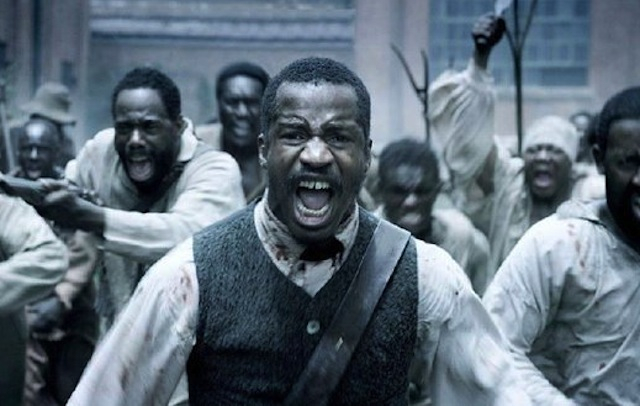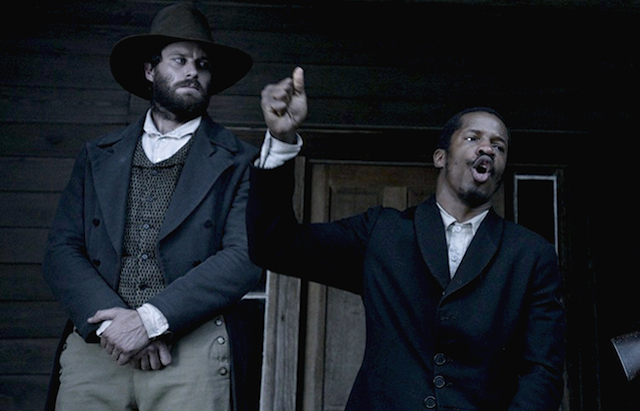CHICAGO – In anticipation of the scariest week of the year, HollywoodChicago.com launches its 2024 Movie Gifts series, which will suggest DVDs and collections for holiday giving.
‘The Birth of a Nation’ Depends on its Own Piety
 Rating: 3.5/5.0 |
CHICAGO – “The Birth of a Nation” has been making news since it premiered at the Sundance Film Festival early this year. Taking place before the American Civil War, this incendiary look at a real slave rebellion in the deep South does pack a punch, but its approach isn’t completely successful.
The major theme of religion is the most interesting part of the narrative, as it motivates the main character of Nat Turner and eventually incites the rebellion. The workings of religion, and how it can be used to justify sins, is as purposeful in the film as how a faith is suppose to forgive. But the pacing in the story is off, and some of the scenes are a bit too precious, questioning the expression of how history should be enhanced, and exactly what is authentic. But there are two nations of birth within the United States history, and we’re still feeling the effects of the nation after slavery, as the film rightly points out.
Nat Turner (Nate Parker) is a slave on a plantation in Virginia in the late 1820s, owned by Samuel (Armie Hammer) and Elizabeth (Penelope Ann Miller) Turner. He shows mastery of language as a child, and learns to read and preach to his fellow slaves. This reputation spreads throughout the county, and Nat is used by Samuel for compensation as a traveling minister, using the Bible’s language to keep slaves in their place.

A Nation is Born: Nat Turner (Nate Parker) in ‘The Birth of a Nation’
Photo credit: Fox Searchlight Pictures
Nat marries a woman named Cherry (Aja Naomi King), but becomes increasingly disgusted on the treatment of his fellow African Americans. When Cherry is attacked and raped by a gang of slave chasers, led by Raymond Cobb (Jackie Earle Haley), revenge becomes a absolution ordained by God. This historical event called “Nat Turner’s Rebellion” is about to begin.
It is very difficult to understand the atmosphere of the early 19th century South, where owning people was considered a regular state of being. The film does interestingly show where the cracks were in this system, as the wealthy who “owned” the individuals often had other goons (black and white) to do the dirty work (slave chasing, auctions, punishment). The guilt of those white men and women who stood by silently is effectively presented, as Armie Hammer’s Samuel plagues his slave owning soul in buckets of alcohol, and his wife (Penelope Ann Miller) ages ungracefully under the burden.
Most audacious is the use of religion as a tool of both oppression and rebellion. The Christian faith is deep in both white and blacks at that time, and the use of God as a tool for putting down and rising up is deeply unsettling. There is an electric scene where bible verses are used as a debate, going deeper into the consciousness of the slave owner’s evil. Those bastards hated the truth told to them, especially through a God that like the slaves, they felt they owned.
Nate Parker’s performance is very pious, even in his conversion to rebel, and never rises above how “important” the role was. The slave family at the plantation was odd as well, with an older grandmother (Aunjanue Ellis) who evokes the image of the Mammy characters from films and literature from the past – although thankfully she doesn’t act like that. There was a bit of melodrama in the story as well, even in the traditional looks at the survival instincts of the slaves, which was closer to a view like the TV show “Roots” (1977) than a possibly more realistic access in 2016.

Standing By: Samuel Turner (Armie Hammer) Facilitates a Preacher in ‘The Birth of a Nation’
Photo credit: Fox Searchlight Pictures
The pacing of the story is slow and deliberate, even up to the rebellion. The slaughter is stark and horrible, much as it probably was, but there was long ending attached to it that was vague (Turner was able to escape the military squashing of the rebels, and met his fate later). So that punch of the rebellion in the film grazes rather than lands solidly, but the emphasis on religion as a tool of influence was exceptional, and probably how the film will be remembered.
The egregious sin of slavery also is about karma, and how the country remains divided from the very fear we perpetuated in the past through the institution itself. “The Birth of a Nation” emphasizes this fear – of God and our own guilty conscience – and how those inner demons continue to split and determine the American nightmare.
 | By PATRICK McDONALD |


